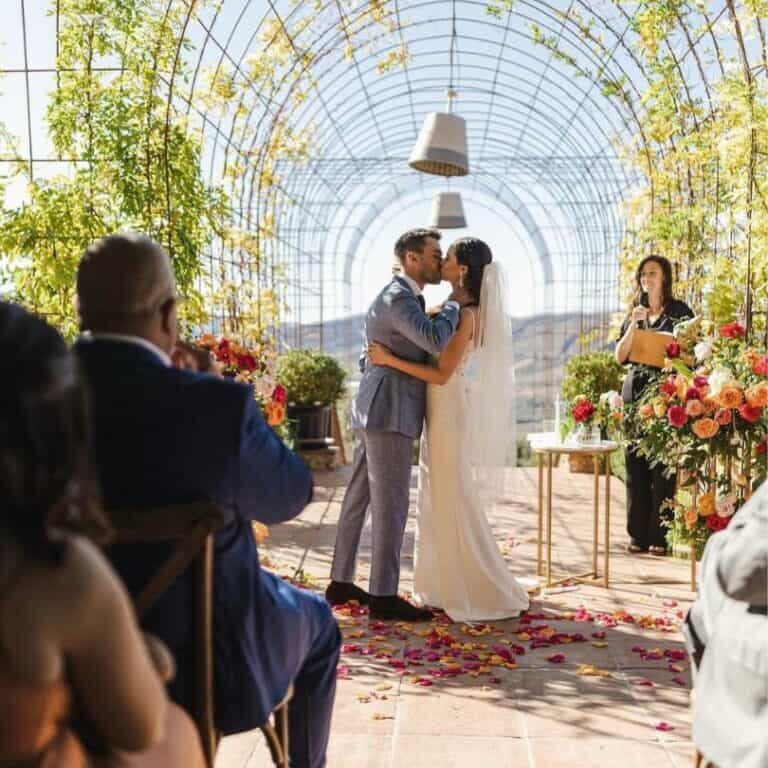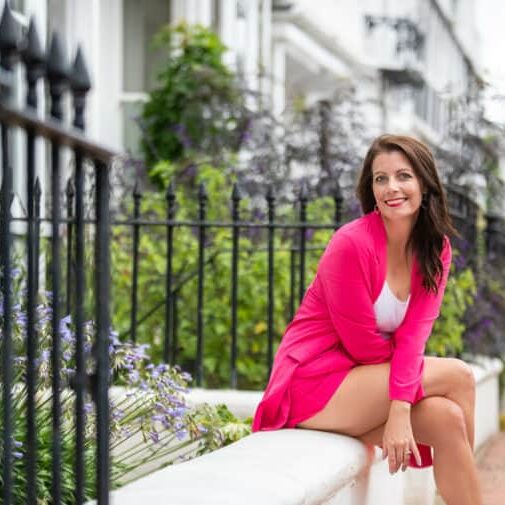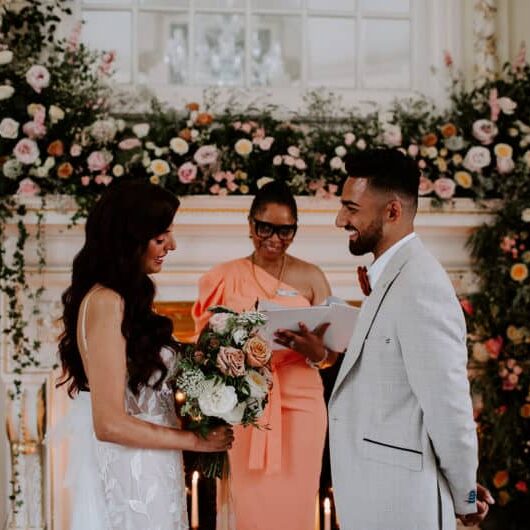A wedding is a beautiful celebration of love and commitment, and in the UK, the role of a wedding registrar is central to making this dream day come true for countless couples. A wedding registrar is a key figure who officiates and legally formalises the marriage ceremony, ensuring that it complies with the country’s laws and regulations. In this blog, we will delve into the important responsibilities and significance of a wedding registrar in the UK, exploring their role in creating magical and memorable wedding experiences for couples and their loved ones.
Understanding the Wedding Registrar’s Role
In the context of the UK, a wedding registrar is a licensed individual appointed by the local authority to conduct civil wedding ceremonies. Civil ceremonies are non-religious, legal unions that grant couples legal recognition of their marriage. The role of the registrar is to guide the couple through the ceremony, lead the exchange of vows, and witness the signing of the marriage register, thus making the marriage legally valid.
Becoming a Wedding Registrar
To become a wedding registrar in the UK, individuals must go through a rigorous process and meet specific requirements. Generally, the key steps include:
a) Education and Qualifications: Most wedding registrars have backgrounds in law, public administration, or relevant disciplines. A degree or qualification in these fields may be required or highly beneficial.
b) Training and Certification: Aspiring registrars typically undergo specialised training to understand marriage laws, ceremony protocols, and conducting civil ceremonies. After completing the training, they may obtain the necessary certification or licence from the local authority.
c) Experience: Prior experience in customer service, public speaking, or event management can also be advantageous in pursuing a career as a wedding registrar.
d) Application and Selection: Once qualified and certified, individuals can apply for registrar positions with local authorities or registration offices. The selection process may involve interviews and assessments to ensure candidates possess the right skills and attributes for the role.
Responsibilities of a Wedding Registrar
The responsibilities of a wedding registrar in the UK are diverse and critical in creating a seamless and legally binding ceremony. Some of their key responsibilities include:
a) Ensuring Legal Compliance: The wedding registrar must ensure that the marriage ceremony adheres to all legal requirements and formalities stipulated by the Marriage Act 1949 and other relevant legislation. This includes verifying the couple’s eligibility to marry, confirming their identity, and ensuring the marriage is conducted in a lawful manner.
b) Conducting the Ceremony: As the officiant, the registrar is responsible for conducting the wedding ceremony with dignity, warmth, and professionalism. They lead the couple and the attendees through the ceremony, explaining the significance of the vows and the marriage declaration.
c) Registering the Marriage: Immediately after the ceremony, the registrar witnesses the signing of the marriage register by the couple and their witnesses. This formalises the marriage and makes it legally recognized by the government.
d) Issuing Marriage Certificates: Following the registration of the marriage, the registrar issues the couple with a marriage certificate, which serves as legal proof of their union. This certificate is often required for various legal purposes, such as changing surnames or applying for spousal benefits.
e) Offering Guidance and Support: Registrars often play a supportive role, answering any questions the couple may have, and guiding them through the process of planning their ceremony. They may offer advice on personalising the ceremony or selecting suitable readings and music.
Types of Ceremonies
In the UK, wedding registrars conduct two primary types of ceremonies:
a) Civil Ceremonies: Civil ceremonies are non-religious ceremonies conducted by wedding registrars in approved venues, such as register offices, town halls, and licensed venues. These ceremonies are increasingly popular among couples who prefer a secular and legal marriage.
b) Civil Partnership Ceremonies: In addition to marriages, wedding registrars can also conduct civil partnership ceremonies. Civil partnerships offer legal recognition and rights to same-sex couples who choose not to marry but still want a legally recognised union.
Benefits of Having a Wedding Registrar
Having a wedding registrar officiate a marriage ceremony offers several benefits to the couple:
a) Flexibility in Venue: Civil ceremonies can take place in a wide range of venues, giving couples the flexibility to choose a location that holds personal significance to them, whether it’s a historical landmark, a picturesque garden, or a rustic barn.
b) Personalization: While civil ceremonies follow a basic structure to ensure legal compliance, they also allow for personalization. Couples can choose their vows, readings, and music, allowing them to create a ceremony that reflects their unique love story.
c) Inclusivity: Civil ceremonies are inclusive and welcoming to all couples, irrespective of their religious or cultural backgrounds. They provide a neutral and accommodating space for couples of diverse beliefs to celebrate their love.
d) Legal Recognition: A wedding conducted by a registered wedding registrar holds legal recognition, granting the couple all the rights and responsibilities associated with marriage under UK law.
In the UK, the wedding registrar plays an essential role in facilitating legal marriages through civil ceremonies. Their expertise in ensuring compliance with marriage laws, coupled with their ability to create heartfelt and personalised ceremonies, makes them indispensable in creating magical and memorable wedding experiences for couples and their loved ones. By combining legal requirements with celebratory elements, wedding registrars bring the joy of marriage to life, leaving an indelible mark on the start of each couple’s shared journey.
Jennifer Claire
Jennifer is the Director of the leading celebrant training company, The Academy of Modern Celebrancy as well as the Founder of The Celebrant Directory, supporting over 600 celebrants globally.
Jennifer run a 2.5k community of celebrants who she dedicates her time to helping them grow their businesses and taking celebrancy from a hobby to a lifestyle.
Jennifer heads up the global Celebrant Industry Awards and the global celebrant summit, Celebrantopia each year!
A celebrant herself since 2010, she knows what it takes to make it in the industry and trains the best celebrants out there across the UK, Europe and the USA.
Take the Quiz to find out if you have what it takes!
Download the Ultimate Guide to becoming a Celebrant & find out how you can make this happen!

If you liked this article you may enjoy ...
Training to be an accredited Celebrant in Spain
Celebrancy is a growing profession in Spain fueled by demand for personalised, non-religious, and interfaith ceremonies, destination weddings and robust ex-pat communities from the UK and beyond. If you’re considering Training to be an accredited Celebrant in Spain, there are a few things you’ll need to know, so we’ve put together this handy guide to…
5 Essential Skills for Celebrants
Have you ever dreamt of officiating life’s most cherished moments – the joyous vows of a wedding ceremony, the heartwarming welcome of a newborn child, or the dignified farewell of a loved one? Celebrants play a crucial role in weaving these threads of life into meaningful experiences. But what exactly does it take to become…
Wedding Celebrant Outfits: 2024 Style Guide
As a wedding celebrant, you’re not just officiating a ceremony; you’re contributing to the overall atmosphere of the special day. While the focus is naturally on the couple, your attire plays a role in setting the tone and ensuring you look professional and polished. And in 2024, we’re throwing the rulebook out of the window!…
As featured in










